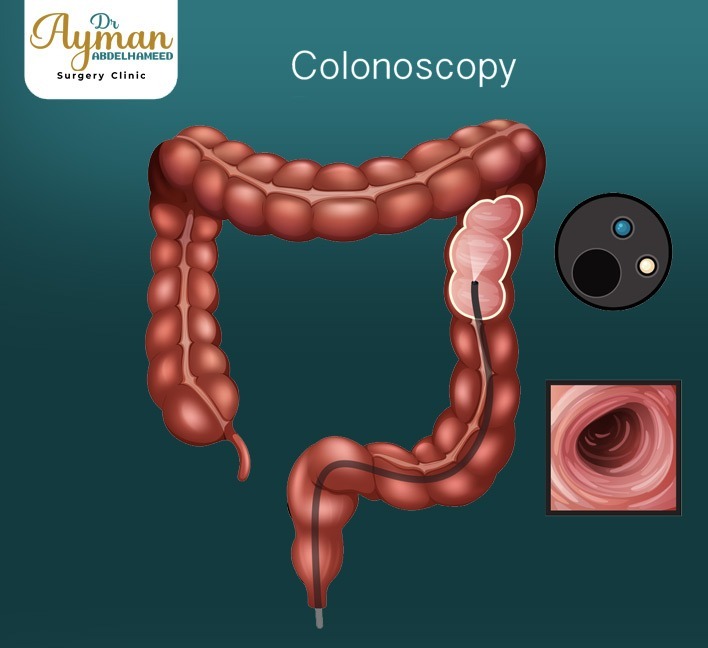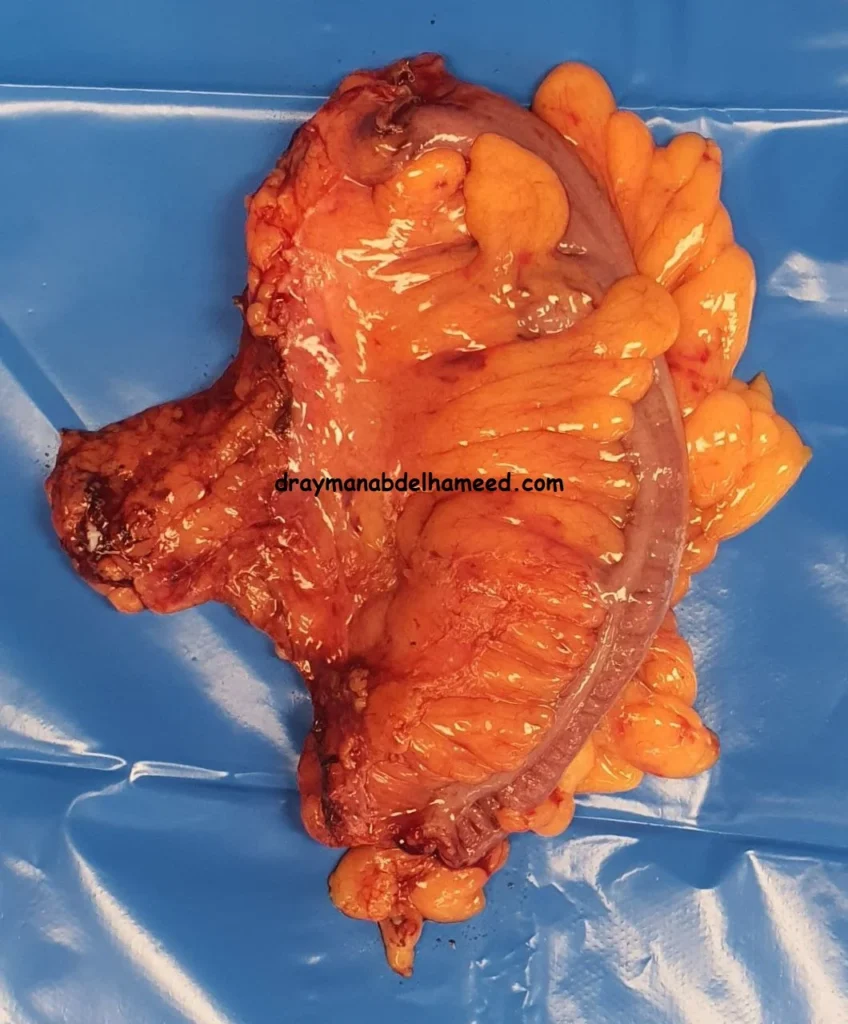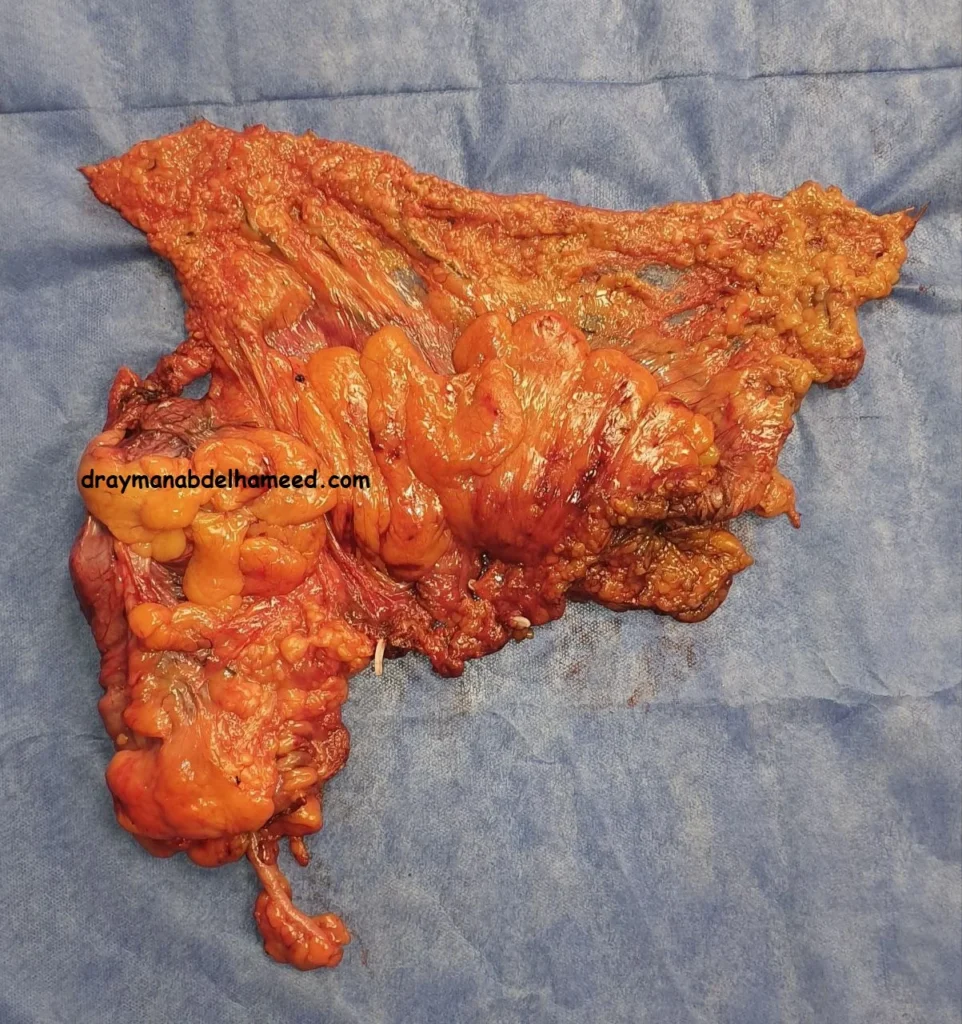Colonoscopy
Colonoscopy

The best oncologist in Egypt, Dr. Ayman Abdel Hamid, consultant and teacher of advanced oncology and laparoscopic surgeries.
What is colonoscopy?
1. Colonoscopy is an examination where Dr. Ayman Abdel Hamid looks into the colon, sometimes called the large intestine.
2. This procedure allows the entire large intestine to be looked at, from the lower part of the rectum all the way to the colon and up to the lower end of the intestine.
3. It is used to diagnose the causes of changes in the intestines and is also used to look for early signs of cancer in the colon and rectum.
4. During the procedure, an endoscope is used, which is a thin, flexible telescope that is passed into the colon through the anus and can be advanced all the way down the colon.
5. The endoscope has a light channel that provides light so we can see inside the colon and it also has a side channel so we can take small samples or biopsy from inside the colon.
What are the goals of colonoscopy :
Checking for intestinal signs and symptoms A colonoscopy can help your doctor explore possible causes of abdominal pain, rectal bleeding, chronic diarrhea, and other intestinal problems.
Colon cancer screening If you are 45 years of age or older and have an average risk of colon cancer, that is, age is the only risk factor for colon cancer, your doctor may advise you to have a colonoscopy every 10 years.
If you have other risk factors, your doctor may advise you Get an examination sooner.
Colonoscopy is one of the few options for detecting colon cancer.
Talk to your doctor about your best options.
Find more polyps If you have had fluid previously, your doctor may recommend a follow-up colonoscopy to detect and remove more polyps.
This procedure aims to reduce the risk of colon cancer.
Treating some problems :
Colonoscopy may sometimes be performed for therapeutic purposes, such as placing a stent or removing an object from the colon.
What are the complications of colonoscopy :
1. An interaction with the sedative used during the examination.
2. Bleeding from the site where the tissue sample (biopsy) was taken, the site of the polyp removal, or any other abnormal tissue.
3. A tear in the wall of the colon or rectum (perforation).
Colonoscopy procedures before Prof. Dr. Ayman Abdel Hamid, oncologist :
1. A colonoscopy is sometimes performed to see if you have a polyp (small growth) in your colon which can be removed at the same time during the colonoscopy.
2. If polyps are found you may need follow-up sessions and colonoscopy later to check for recurrence.
3. Sometimes a colonoscopy is performed to see if you have a cancerous polyp, after which you may need surgery.
4. The doctor also sometimes requests a colonoscopy to confirm or rule out Crohns disease, colitis, or tumors. Biopsies are usually taken and sent to the laboratory for examination.
5. Colon tumors can usually be treated if they are detected early. Therefore, if someone in the family suffers from colon diseases, family members may be advised to undergo a colonoscopy from time to time.
Dr. Ayman Abdel Hameed :
The official page: Prof. Dr. Ayman Abdel Hameed, consultant and teacher of oncology surgeries and limited surgical intervention.
Doctorate in Oncology Surgery at the National Cancer Institute, Cairo University.
Master of Surgery oncology at the National Cancer Institute, Cairo University.
Bachelor of Medicine and Surgery, Faculty of Medicine, Kasr Al-Ainy, Cairo University, 2010, with distinction and honors.
More than 14 years of practical experience in surgery, oncology, and limited surgical intervention using surgical laparoscopes and surgical robots.
Book now : 01557112376


